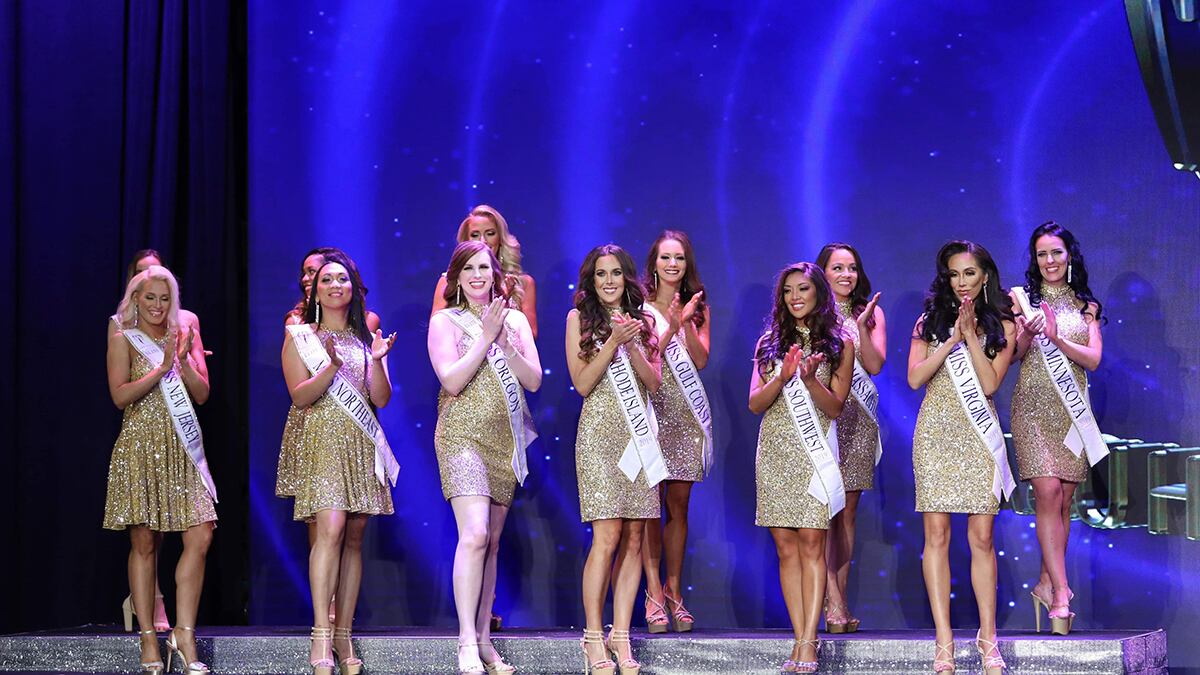Last January, Anita Green signed up to compete in a Miss Oregon beauty pageant.
Green, 29, is a trailblazer on the pageant circuit. When she competed in her first pageant, the 2017 Miss Montana USA contest, she was only the third openly transgender contestant in the history of the Miss Universe program.
"This is about giving minorities a voice," Green says. "I believe I'm beautiful, and I want to set an example for all women—cisgender and transgender—that beauty doesn't have to fit into specific molds."
United States of America's Miss Oregon pageant organizers didn't agree. (United States of America Pageants is a different organization from the one that operates Miss Montana USA, even though both pageants bear patriotic initials.) They rejected Green's entry the same month she applied, returning her $195 entry fee after the state pageant's director told her it was a "natural" pageant.
Now she's suing in federal court, asking a judge to compel the pageant to allow her to compete, as well as for unspecified monetary damages.
"I felt as though I was being invalidated," Green says. "I felt as though the organization was saying I am not a woman and I'm not woman enough."
United States of America Pageants and its Miss Oregon director, Tanice Smith, declined to comment on the lawsuit.
Green's case appears to be the first of its kind in Oregon. If she wins, it could establish a legal precedent for Oregon and 20 other states with similar nondiscrimination laws, requiring pageant organizers to allow transgender people to compete.
The lawsuit is part of a continued push for equality in the state, says Mikki Gillette, an executive at Basic Rights Oregon, the state's leading LGBTQ advocacy group.
"The last decade or so has seen a real broadening of visibility for transgender people," says Gillette, who is also a transgender woman. "But this kind of message that 'you're not really a woman' is so harmful—for the person it's said to and for young people growing up, trying to understand their place in the world."

United States of America's Miss Oregon pageant, which takes place annually in Corvallis, says on its website it is "designed to encourage women to strive to achieve their hopes, dreams, goals and aspirations, while making them feel confident and beautiful inside and out." State winners qualify to enter the national United States of America Miss pageant and win a prize package valued at more than $2,000.
Green moved to Oregon from Montana in 2018, and in 2019 won Miss Earth USA's Elite Miss Oregon contest. One year ago, she began corresponding on Facebook with United States of America's Oregon pageant director.
According to Facebook messages acquired by WW, Green—who works for a video game company—reached out to Smith, asking for more information about the pageant. Smith sent a link with the pageant rules, and after reading them, Green responded, "You know I'm transgender, right?"
"I did not," Smith wrote back. "Our rules and regulations allow same-sex marriage, however this is a natural pageant."
Smith then offered to help Green find another pageant. Green asked if Smith would "be willing to change the rules to allow transgender women to compete."
"Again," Smith wrote, "we would be happy to help you find a pageant that you qualify for, however at this time we do not anticipate the rules changing."
"Well," Green responded, "I'll talk to my attorney about this then because discrimination is unacceptable. This is clearly discrimination."
"I am sorry that you feel that way," Smith replied and ended the conversation. Smith declined WW's request for comment on the exchange.
On Dec. 16, Green sued in U.S. District Court. Her lawsuit, filed by Portland lawyer Shenoa Payne, argues United States of America Pageants, which hosts pageants across the nation and is headquartered in Nevada, unlawfully discriminated against Green by excluding her from its Miss Oregon pageant because of her gender identity. It seeks to require the pageant to change its rules; to cease the exclusion of transgender women; to require training of pageant staff on Oregon's public accommodation law; and to award Green damages "in an amount to be determined at trial."
According to United States of America Pageants' rules, which are listed on its website, entrants—in addition to being single and never having "posed nude in film or print media"—are required to be "natural born female."
"This policy" the lawsuit reads, "intentionally designed to exclude the specific class to which the plaintiff [Green] belongs—transgender females—is discriminatory because it denied the plaintiff the full and equal advantages and privileges of the defendant's [United States of America Pageants] services in violation of Oregon's public accommodation law."
The suit argues that because the pageant is open to the public, barring Green from entering is legally the same as a hotel denying her a room or a restaurant refusing to serve her.
It also argues that although the pageant requires entrants to be "natural," it does not exclude women who have undergone plastic surgery.
"Rather," the lawsuit reads, "it is intended only to exclude, and is enforced only against, a specific class of individuals—transgender females."
It's only in the past decade that openly transgender beauty pageant contestants have begun to gain footing among their cisgender peers. In 2012, the Miss Universe program ended its ban on transgender entrants after the threat of a lawsuit. Since then, there has been only one transgender titleholder, Miss Universe Spain in 2015.
Green's desired outcome? She still hopes to compete in United States of America's Miss Oregon pageant.
"This is about justice and it's about righting a wrong," Green says. "No matter what anyone thinks about pageants, trans women should have the choice to compete just like anyone else."
